Joseph Konstan
The MovieLens Beliefs Dataset: Collecting Pre-Choice Data for Online Recommender Systems
May 21, 2024
Abstract:An increasingly important aspect of designing recommender systems involves considering how recommendations will influence consumer choices. This paper addresses this issue by introducing a method for collecting user beliefs about un-experienced items - a critical predictor of choice behavior. We implemented this method on the MovieLens platform, resulting in a rich dataset that combines user ratings, beliefs, and observed recommendations. We document challenges to such data collection, including selection bias in response and limited coverage of the product space. This unique resource empowers researchers to delve deeper into user behavior and analyze user choices absent recommendations, measure the effectiveness of recommendations, and prototype algorithms that leverage user belief data, ultimately leading to more impactful recommender systems. The dataset can be found at https://grouplens.org/datasets/movielens/ml_belief_2024/.
The Economics of Recommender Systems: Evidence from a Field Experiment on MovieLens
Nov 25, 2022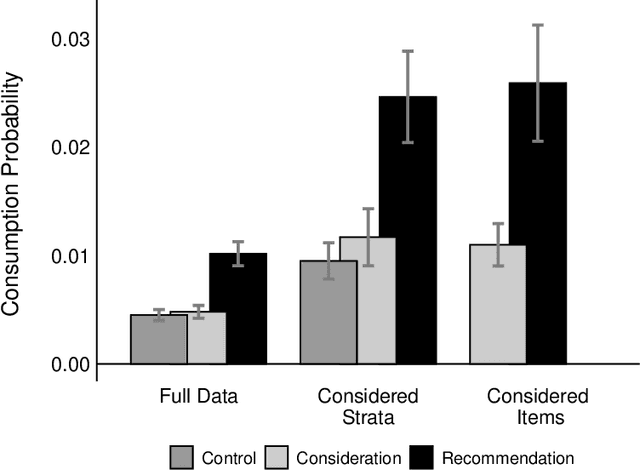
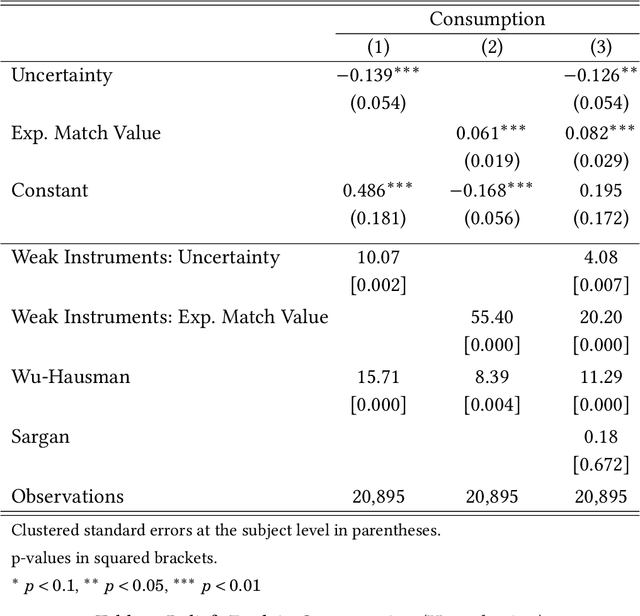
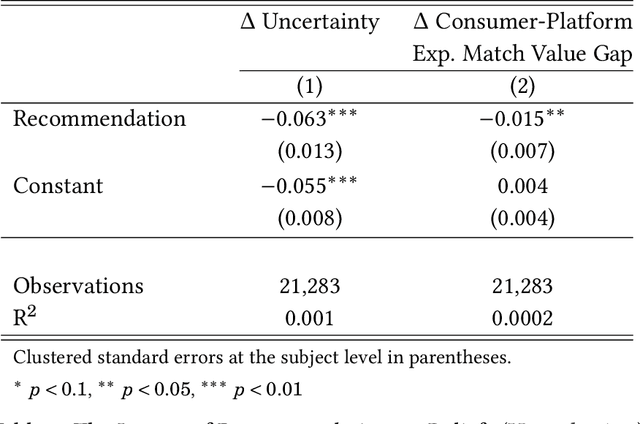
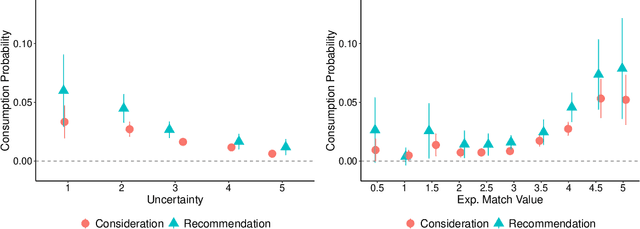
Abstract:We conduct a field experiment on a movie-recommendation platform to identify if and how recommendations affect consumption. We use within-consumer randomization at the good level and elicit beliefs about unconsumed goods to disentangle exposure from informational effects. We find recommendations increase consumption beyond its role in exposing goods to consumers. We provide support for an informational mechanism: recommendations affect consumers' beliefs, which in turn explain consumption. Recommendations reduce uncertainty about goods consumers are most uncertain about and induce information acquisition. Our results highlight the importance of recommender systems' informational role when considering policies targeting these systems in online marketplaces.
Toward the Next Generation of News Recommender Systems
Mar 11, 2021
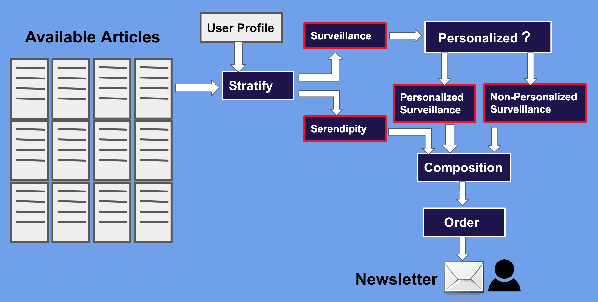
Abstract:This paper proposes a vision and research agenda for the next generation of news recommender systems (RS), called the table d'hote approach. A table d'hote (translates as host's table) meal is a sequence of courses that create a balanced and enjoyable dining experience for a guest. Likewise, we believe news RS should strive to create a similar experience for the users by satisfying the news-diet needs of a user. While extant news RS considers criteria such as diversity and serendipity, and RS bundles have been studied for other contexts such as tourism, table d'hote goes further by ensuring the recommended articles satisfy a diverse set of user needs in the right proportions and in a specific order. In table d'hote, available articles need to be stratified based on the different ways that news can create value for the reader, building from theories and empirical research in journalism and user engagement. Using theories and empirical research from communication on the uses and gratifications (U&G) consumers derive from media, we define two main strata in a table d'hote news RS, each with its own substrata: 1) surveillance, which consists of information the user needs to know, and 2) serendipity, which are the articles offering unexpected surprises. The diversity of the articles according to the defined strata and the order of the articles within the list of recommendations are also two important aspects of the table d'hote in order to give the users the most effective reading experience. We propose our vision, link it to the existing concepts in the RS literature, and identify challenges for future research.
Developing a Recommendation Benchmark for MLPerf Training and Inference
Apr 14, 2020Abstract:Deep learning-based recommendation models are used pervasively and broadly, for example, to recommend movies, products, or other information most relevant to users, in order to enhance the user experience. Among various application domains which have received significant industry and academia research attention, such as image classification, object detection, language and speech translation, the performance of deep learning-based recommendation models is less well explored, even though recommendation tasks unarguably represent significant AI inference cycles at large-scale datacenter fleets. To advance the state of understanding and enable machine learning system development and optimization for the commerce domain, we aim to define an industry-relevant recommendation benchmark for the MLPerf Training andInference Suites. The paper synthesizes the desirable modeling strategies for personalized recommendation systems. We lay out desirable characteristics of recommendation model architectures and data sets. We then summarize the discussions and advice from the MLPerf Recommendation Advisory Board.
 Add to Chrome
Add to Chrome Add to Firefox
Add to Firefox Add to Edge
Add to Edge